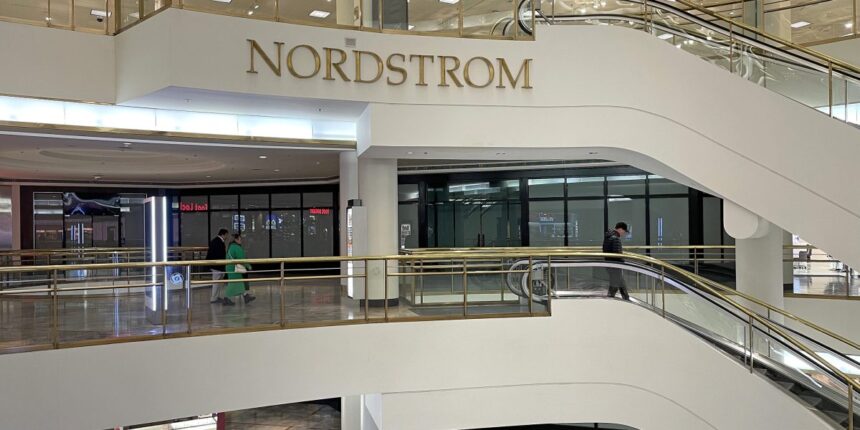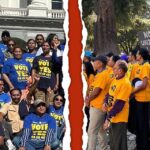
Retail workers at an American Eagle store in San Francisco had firearms brandished in their faces while working in a major mall, a new lawsuit alleges.
The brand is suing shopping centre chain Westfield for allowing its San Francisco site to “deteriorate into disarray,” amid a mass exodus of retailers from the city center.
The filling alleges that Westfield broke its lease agreement by allowing the site to fall into such a state of neglect that staff were forced to “suffer and respond to gun violence, physical assaults, burglaries, and robberies,” according to the suit seen by Fortune.
The suit claims that in more than 100 instances between May 2022 and May 2023 staff were subject to “significant security incidents… On multiple occasions, patrons have brandished firearms while verbally assaulting the store’s employees.”
American Eagle added it had paid millions of dollars for the store, but that Westfield “accepted no responsibility for its role in allowing these issues to infect its mall. It shifted all the blame to San Francisco.”
In the filing made to San Francisco’s Superior Court on Monday, lawyers for the retailer add: “Worse, Westfield closed its management office at the mall, leaving American Eagle on its own to deal with Westfield’s unmonitored common areas and their problems.”
It later adds: “Westfield neglected its obligations, allowing the mall to become a lightning rod for, in Westfield’s words, ‘rampant criminal activity.’”
Bosses at the brand—which said they nearly doubled their security expenditure from 2022 in order to keep staff safe—are unimpressed by their landlord shifting the blame onto the city: “Westfield cannot walk away from the harm that it has caused without consequence.”
Paris-based Westfield did not immediately respond to Fortune’s request for comment.
San Francisco is indeed battling a range of issues: from homelessness and drug use to crime.
According to a 2022 count, there are just over 7,750 homeless people in San Francisco. Of those, approximately 3,360 are living on the streets, while approximately 4,400 sleep in shelters. Some 6,000 women have been homeless at any given time, and are facing “overwhelming” levels of violence.
American Eagle isn’t the only shop facing the sharp end of the issue. In April this year, Whole Foods announced it was closing its flagship store in downtown San Francisco, citing employee safety.
The decision came after the San Francisco Standard reported opening hours had been changed because of shoplifting, while rules were introduced to bathroom use because staff found syringes and pipes in the facilities.
Meanwhile Salesforce CEO Marc Benioff said late last month it may be time for the company’s headline conference, Dreamforce, to move on from the location.
“If this Dreamforce is impacted by the current situation with homelessness and drug use it may be the last Dreamforce” in the city, Benioff told the San Francisco Chronicle in an interview released in August. (Benioff walked back those comments at least in part on Wednesday, when he said he pushed San Francisco officials to clean up the city before Dramforce and was happy with the results.)
American Eagle did not immediately respond to Fortune’s request for comment.
Westfield’s woes
American Eagle is seeking damages from Westfield for “damages caused by its failures and broken promises”—but it joins a long list of businesses trying to extract some cash from the Europe-based company.
In June the company—which has 75 shopping centers across 12 countries—said it planned to default on $558 million in loans and give up control of the San Francisco site.
In a statement to CNN at the time, Westfield said the decision is due to “challenging operating conditions in downtown San Francisco, which have led to declines in sales, occupancy and foot traffic.”
Although the American Eagle—and its associated brand Aerie—store is still open in the Westfield mall, it’s one of a vastly reduced number left standing.
On the ground in the West Coast city, researchers found that 47% of stores in Union Square—the city’s historic shopping district—have shut since before the pandemic.
Reporters from the San Francisco Standard cross-referenced brands in-situ in 2019 with those still standing in 2023, finding the likes of fashion retailer Coach, skincare brand The Ordinary and shoe designer New Balance have all since closed.








